
Streamlined end-to-end Agile integration for seamless methodology transition
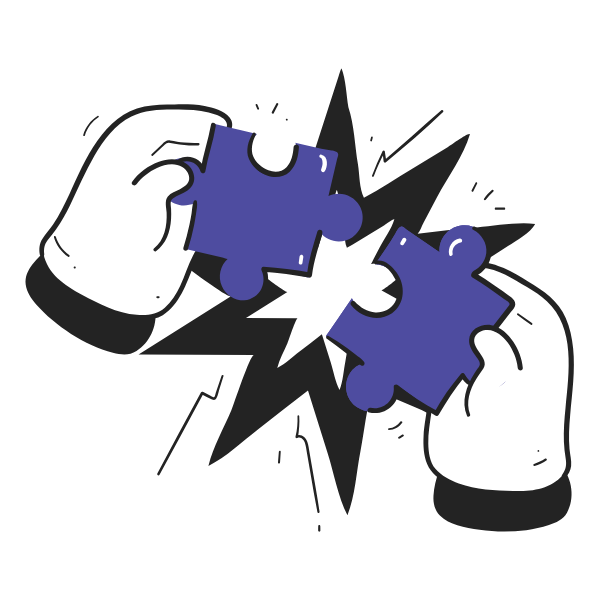
Spearheaded Agile transformation for over 400+ teams
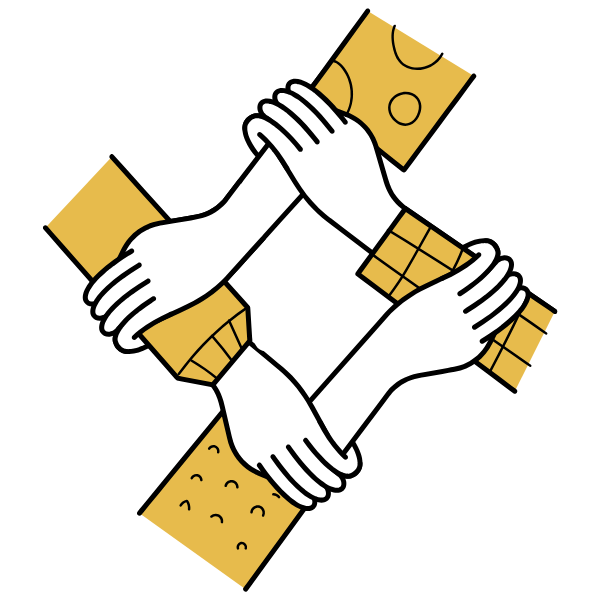
Expertly educated a large workforce in Agile methodologies
Check your Agile Maturity Now!
The assessment will take less than 10 minutes to complete. Your details are completely safe with us.
Rated [4.9 Stars] on Google. We’re proud to deliver top-notch service and quality that our clients love.
Agile ways of working help organizations adapt to changes in a VUCA world, constantly innovate, reinvent themselves, and become more customer-centric to deliver exceptional value to their end clients.
Agile improves execution certainty, transparency, predictability, collaboration, time-to-market, pull-based work culture, one-team mindset, and overall alignment with core organizational business objectives.
Organizations should consider Agile when they want to move away from traditional gated, push-based, siloed, change-averse, big upfront planning-based work cultures to an iterative, incremental work culture that embraces change and encourages close collaboration with end customers. However, driving such change can be complex as it directly challenges the status quo, highlights areas of organizational inertia, and addresses resistance to change stemming from factors like past failures, fear of the unknown, skepticism, or lack of motivation.
Read more
Agile consulting helps organizations understand their present As-Is state, align their core business objectives with Agile practices, define an ideal To-Be state, and design a context-driven, time-bound Agile transformation roadmap to achieve their goals, followed by on-the-job Agile implementation.
Agile consulting is guided by Agile principles and values, prioritizing collaboration, flexibility, and rapid adaptation to change. A good Agile consultant ensures that agility aligns with the organization’s constraints, recognizing that a one-size-fits-all approach does not work.
Agile Transformation plans employ a mix of methodologies such as Scrum, Kanban, XP, Lean, and scaling frameworks like SAFe, LeSS, Scrum of Scrums, among others, to address specific business challenges and evolve practices over time.
Less
Following are the key drivers for an organization to explore agile ways of working. Partnering with an agile consulting firm can further accelerate this transition, offering expertise and strategic guidance tailored to specific organizational needs

In today’s rapidly changing business environment, companies need to be able to respond to change quickly and
Read more
effectively. Agile methodologies provide a framework for adapting to changing market conditions and customer needs with help of shorter development cycles, faster release cycles, shorter feedback loops, and frequent introspection
Less

Agile methodologies promote a focus on delivering value to the customer and aligning with business goals, which can help
Read more
companies achieve their strategic objectives more effectively
Less

Companies are under increasing pressure to deliver products and services that meet the needs of their
Read more
customers. are soon becoming obsolete and thus the needs of the customer are also demanding. Agile methodologies place a strong emphasis on customer collaboration and feedback, helping companies build products and services that meet the needs of their customers in this rapidly changing world By the time companies deliver products they become obsolete. Agile methodologies place a strong emphasis on customer collaboration and feedback, helping companies build products and services that meet the needs of their customers in this rapidly changing world. Faster feedback loops promote the delivery of smaller pieces of working software frequently, which can help teams validate the goals of the product and pivot in case needed.
Less

As organizations become more complex as demands are ever changing, technologies are advanced, teams are
Read more
distributed, there is a growing need for improved collaboration and communication across teams and departments. Agile methodologies promote cross-functional collaboration and improved communication, leading to better alignment and more efficient problem-solving. Agile organizations promote self organizing culture with increased accountability, employee satisfaction and innovation.
Less

Companies need to deliver high-quality products and services to remain competitive in today’s marketplace. Agile
Read more
methodologies promote continuous testing and improvement, helping companies deliver high-quality products and services. Involving quality assurance teams early and during development also helps in detecting bugs in the product and faster correction paves way for quality product.
Less

With Incremental delivery, companies reduce development time and get products and services to
Read more
market faster which can deliver value to the end users faster
Less
Set up a call with India's best agile consutling team
Why do you need an external agile consulting service when you can hire an agile coach?
Great question! We believe that getting external consulting helps organizations adopt a quick, time-bound, outcome-driven Agile transformation journey marrying culture, mindset, process, tools, and hands-on implementation expertise. Our clients have one problem less to solve and can focus on their key business while creating internal competencies and leveraging new ways of working. Organizations may choose to use Benzne Agile consulting services for several reasons summarized below. The leaders should ask these questions to the agile consulting companies they are evaluating for leading their agile business transformation and agile at scale engagements.
An external Agile consultant is not influenced or biased with any particular person or management. They bring in an
Read more
objective and neutral perspective on the table with recommendations derived from their observation.
Less

The sole purpose of an Agile consultant is to implement agile within the organization. Hence is it a key thing
Read more
for them to understand all the aspects of current work culture without being partial.
Less
External Agile consultant brings a wealth of experience and expertise to the table, having worked with a variety of
Read more
organizations and helped them successfully adopt an Agile approach. They can provide valuable guidance and support to organizations as they navigate the challenges of adopting Agile.
Less
External Agile consultant can tailor their services to the specific needs of an organization, helping them to design and implement a
Read more
customized Agile solution that meets their unique needs and goals.
Less
By working with an external Agile consultant, organizations can save time and resources that would otherwise be spent
Read more
on training and developing internal Agile expertise. An Agile consultant is focussed with one thing on their plate, they can create positive tension and a sense of urgency which helps teams achieve their agility goals on time. leading to a time bound agile transformation journey.
Less
A good Agile consultant is mostly milestone driven. That is, in an implementation roadmap, they focus on the milestones
Read more
achieved and quickly inspect and pivot.
Less
Implement a time bound, business outcome oriented Agile Transformation journey with Benzne.

Benzne core focus is designing and implementing turnkey Agile transformation journeys. Benzne is a team of
Read more
Hands-on Agile practitioners who have led agile transformation in varied, complex work environments across the globe. We have completed 15+ Transformation Journeys in the 4+ years of our journey as an Agile consulting company, helping transform organizations, programs, projects & teams & across Fintech, Healthcare, Insurance, Semiconductors, SaaS, Non-IT, Proptech & various other IT product and services companies.
Less

We take the time to truly understand our client’s needs, goals, and challenges. This helps us to tailor the approach
Read more
and share recommendations to meet their specific needs. Every customer scenario is unique and needs a customized agile transformation roadmap which is contextual to them. We develop and execute Agile strategies which are always aligned with clients' business objectives.
Less

We focus on delivering high-quality results that meet or exceed expectations. This has helped us build trust and
Read more
credibility with our clients. We are transparent about our approach & methodology. Being honest about any challenges or limitations and working closely with our client to find solutions is the core of a successful agile transformation. We ensure to keep our clients informed of progress, provide regular updates, and respond to their questions and concerns promptly.
Less

Agile is 80% culture and 20% processes. Our priority is to work with all layers - Leadership, middle
Read more
management and teams to create the right buy-in for implementing Agile. Executive support is critical to the success of an Agile transformation but equally important is engaging and empowering every employee and creating an environment that encourages collaboration and innovation.
Less

Agile transformations are ongoing processes that require continuous improvement with closed feedback loops.
Read more
This includes regularly reassessing the organization’s processes, structures, and culture to identify areas for improvement and making changes as needed.
Less

At Benzne, we are focused to be a trusted consulting partner for our clients and build long-lasting, time tested
Read more
relationships so that we are seen as the best agile consulting and coaching firm.We ensure that our exit strategy is stronger than our entry strategy. Developing internal competencies, creating self sustenance and stability in the system is very important for us. We also give great importance to establishing effective governance at the start of the transformation journey, defining the roles and responsibilities of the key stakeholders, creating a governance committee, and establishing clear decision-making processes.
Less
Talk to our Agile Consulting Team to know more

The first step in planning an Agile transformation is to assess the current state of the organization. This includes
Read more
analyzing the current processes, structures, culture, and technology to determine the strengths and weaknesses of the organization, this is called As-Is Agility health Assessment and is the bedrock of a successful agile transformation
Less

Once the current state has been assessed, the next step is to define the desired outcomes of the Agile transformation.
Read more
This includes understanding the goals and objectives of the transformation and defining the desired outcomes in terms of improved processes, structures, culture, and technology (To-be State)
Less
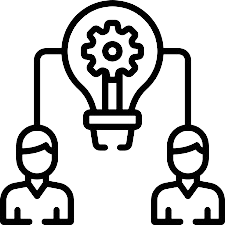
a. Engaging key stakeholders is critical to the success of an Agile transformation. This includes engaging executives,
Read more
managers, team leaders, and individual contributors in the planning process to build buy-in and ensure that everyone is working towards the same goals
b. Identify the teams and processes that will be involved The next step is to identify the teams and processes that will be involved in the Agile transformation. This includes understanding the interdependencies between teams and processes and determining which teams and processes will be impacted by the transformation. We can also start with few teams and pilot agile to create pockets of excellence, this will create a positive pull towards Agile in the organizationx
Less
Once the teams and processes have been identified, the next step is to develop a detailed implementation plan.
Read more
This includes creating a timeline for Agile implementation, identifying the resources that will be needed, developing a budget for the transformation and establishing a governance structure is important to ensure that the Agile transformation is managed effectively. This includes defining the roles and responsibilities of the key stakeholders, creating a governance committee and establishing clear decision-making processes.
Less
Once the plan has been developed, the next step is to communicate the plan to the organization. This includes
Read more
communicating the goals and objectives of the transformation, agreeing on the approach and the timeline for implementation, and the resources that will be needed (Playback session)
Less
Training and coaching are critical components of an Agile transformation. Fundamental training on Agile methodologies
Read more
are delivered to teams and leadership to bring in a common understanding of Agle. This is followed by coaching teams and individuals on how to apply Agile practices in their work with coaches embedded in the teams and multiple role and work specific training.
Less
The next step is to implement the Agile transformation, which involves putting the changes into effect and monitoring
Read more
progress. This includes regular check-ins with teams to ensure that the transformation is on track and making the necessary adjustments along the way.
Less

Agile transformations are ongoing processes that require continuous improvement. This includes regularly reassessing
Read more
the organization’s processes, structures, and culture to identify areas for improvement and making changes as needed. Insights gained from real-world implementation experience of our consultants inform adjustments, refinements and pivot led by closed feedback loops
Less
Teams and individuals are mentored to drive continuous improvement and maintain the rigor and cadence of Agile
Read more
practices. We at, Benzne believe in long term partnerships and work in close collaboration with our clients for establishing processes that are build to last, but also open to inspect and adapt in a VUCA environment. Our core focus is always to impact the organization culture so that clients move to ‘being Agile’ state from ‘doing Agile’
Less
Set up a discussion with Benzne consulting team to contextualize your agile transformation journey.
Benzne was proactive in identifying needs and presenting us with solutions. They definitely were committed to making sure our team was embracing and adopting Agile correctly. They were the right partners for us to help with our transition from a Waterfall model to Agile model. I would highly recommend them to anyone wanting to adopt Agile
Working with Benzne team was really smooth. They were able to introduce agile practices within the team without changing the culture of the team. Nothing was forced on the teams. Teams were demonstrated with the positive outcomes of each agile practice and everyone picked it up and adopted agile practices without much of hesitations
We would see that Agile Thought process and mindset instilled in our associates. We also saw in this project all defined agile metrics where met due to guidance in Agile Processes and Ceremonies. They followed the letter and spirit. Their execution style is inclusive and collaborative. Appropriate tools like Moscow, planning poker , T shirt Sizing etc. were used in addition to various other templates and Jira & Assembla as needed as per the phase in the project





Read our case studies on ‘Waterfall to Agile transformation for an entire Payment Solutions group in Petroleum Domain using SAFe as a scaling framework’ or ‘Agile at Scale intervention led by Spotify Model for a leading Product Engineering and Semiconductor Design Services Firm’ and many more on the link below.
Set up an advisory call with our Agile consulting team for a quick ‘Agility Health Assessment'.
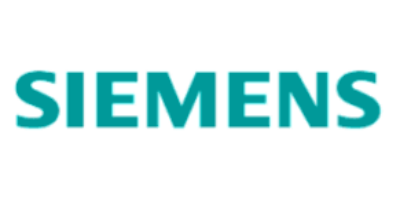
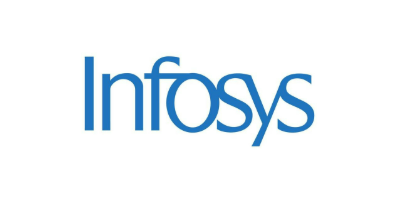
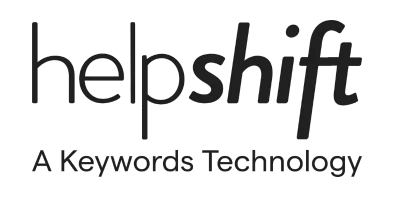
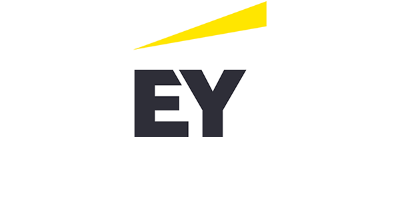

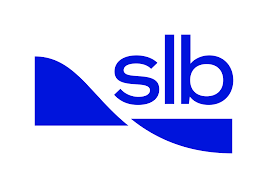
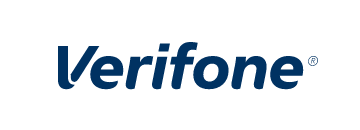
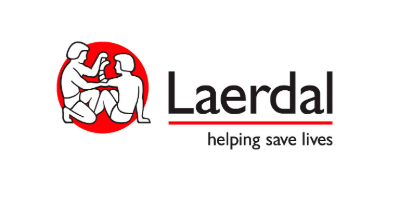
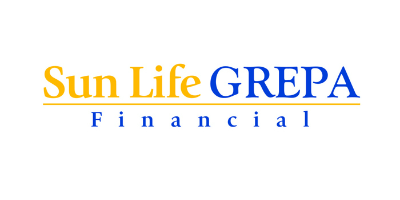
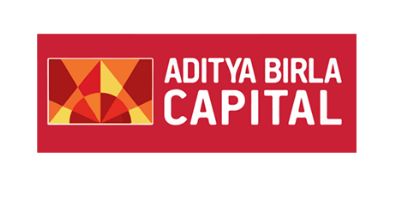

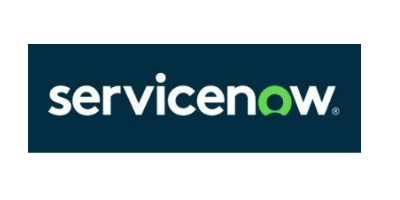
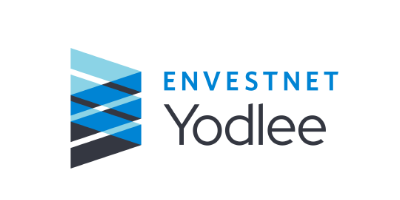

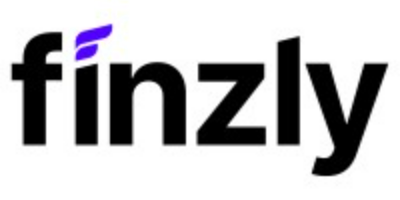
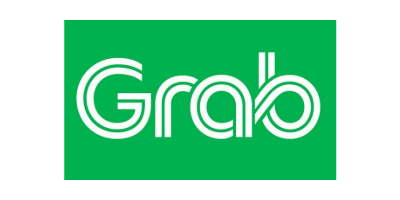
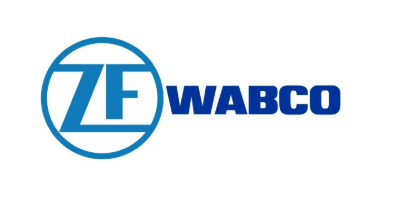
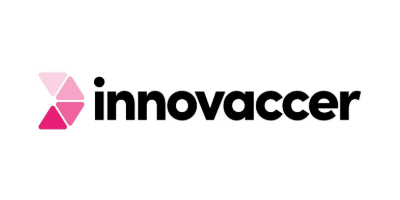
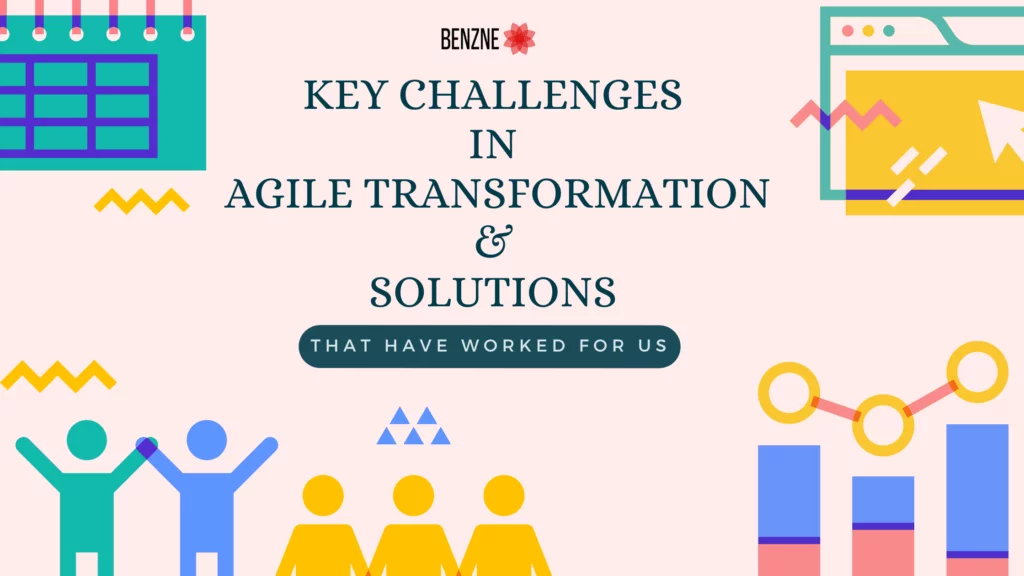
The purpose of Agile is not to create beautiful egalitarian processes or a product with every possible feature or an organization where people are happy and close to Nirvana.
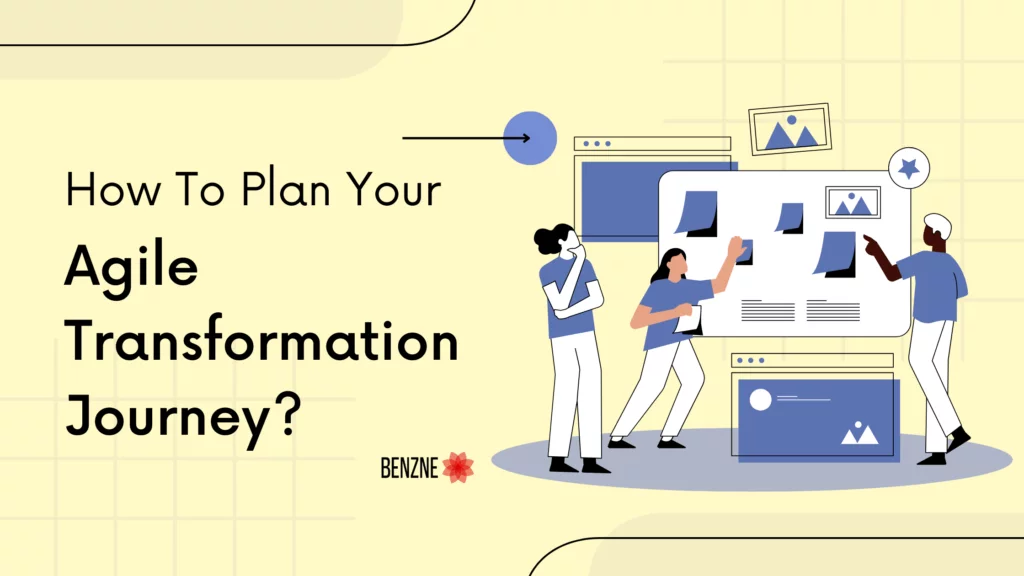
Planning and estimating work plays a major role in transitioning your projects and teams to Agile ways of working to negotiate the challenges of the VUCA world.
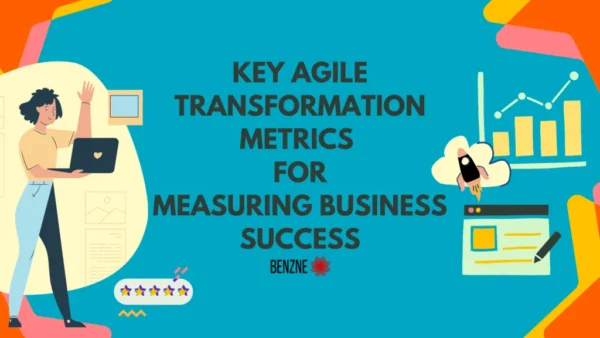
Agile transformation is a journey which organizations take to help teams move towards better and relevant ways of working.
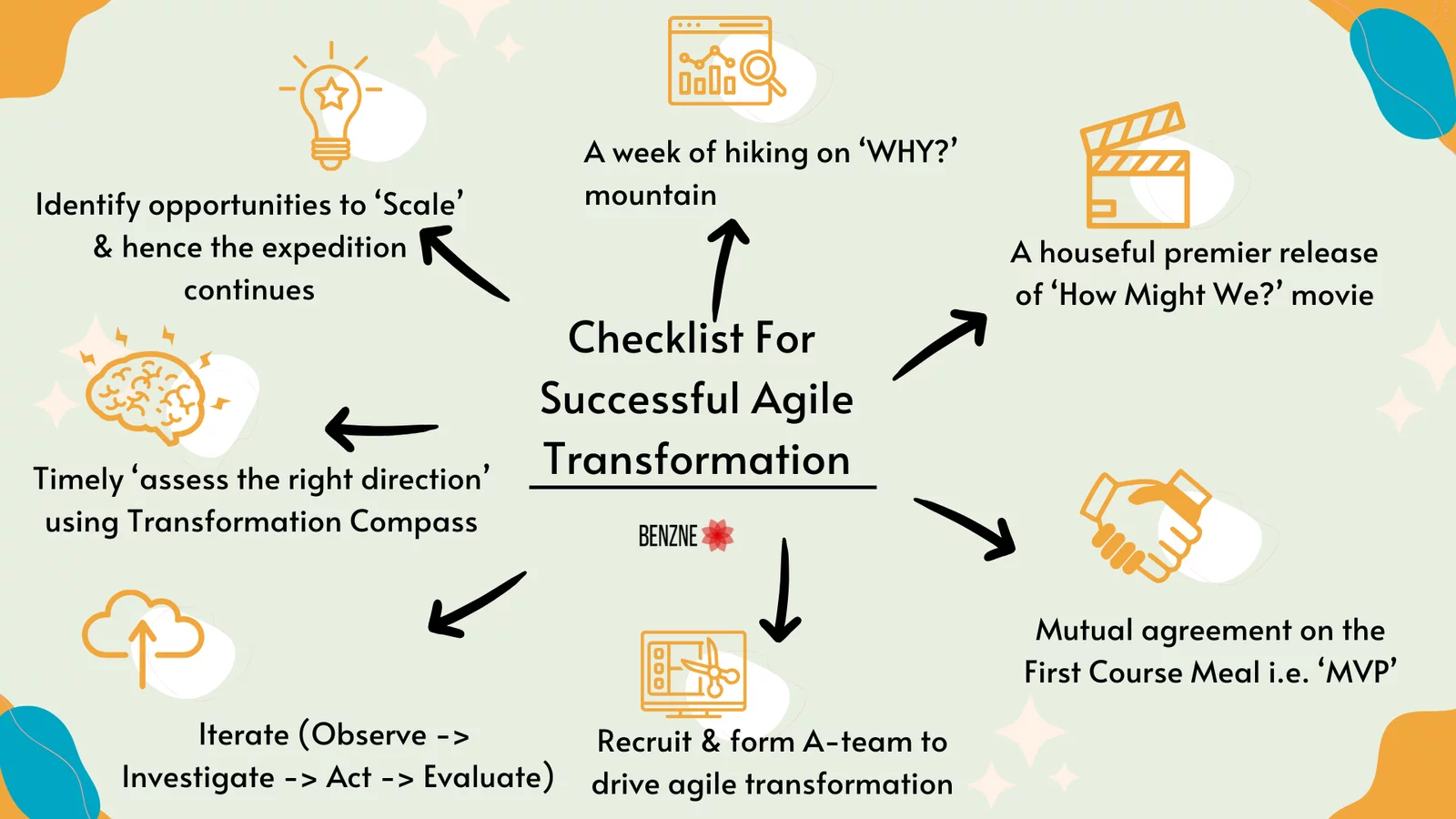
In the past two decades, Agile has become the talk of the town. It might be the rarest of the rare trend in any kind of industry where the culture and....
Agile consulting is based on the Agile principles and values, which prioritize collaboration, flexibility, and rapid adaptation to change. Agile consulting firms help businesses align agility within the constraints of the organization and help them leverage agile ways of working to innovate constantly in a VUCA environment.
Agile consulting helps organizations understand their present As-Is state, marry their core business objectives with Agile ways of working, identify an ideal To-Be State and design a context driven, time bound Agile transformation roadmap to reach there, followed by actual on-the-job Agile implementation.
A good agile consultant helps organizations adopt a quick, time-bound, outcome-driven Agile transformation journey marrying culture, mindset, process, tools, and hands-on implementation expertise. They help leadership realize long term business objectives, support middle management to achieve execution certainty and work with the teams to make their jobs easier and more productive.
In short, an agile consultant designs and implements context driven agile adoption while creating internal competencies and leveraging new ways of working.
Agile ways of working help organizations adapt to changes in a VUCA world, constantly innovate and reinvent themselves and be more customer centric to deliver exceptional value to their end clients.
Agile helps to improve execution certainty, transparency, predictability, collaboration, time-to-market, pull based work culture, one team mindset and overall alignment with core organizational business objectives.
You should also consider agile when the organization wants to move away from traditional gated, push based, siloed, change averse, big upfront planning based work culture to an iterative, incremental work culture which embraces change and encourages close collaboration with end customers.
Any agile transformation requires careful consideration of the organization’s current state and a clear understanding of the desired outcomes. A good agile company always starts with the business context and then designs a solution which is suited to the particular client situation.
As a globally trusted top agile consulting company, Benzne focus on building strong relationships with our clients, delivering exceptional value and consistently exceeding expectations. Our time bound, business context driven, framework agnostic focus differentiates us from other agile consulting companies.
We keep specific organizational requirements in consideration when designing agile training programs, trainers routinely tweak course coverage during the session to accommodate context driven learning needs. They are able to do so because of multiple years of experience as an hands-on agile practitioner.
What are the key agile transformation challenges? Simply, the fact that transformation is not a single player game. There are scores of people involved and all of them must contribute towards this pursuit of agility in the organization.
Mostly, Individuals, teams, organizations start their pursuit of Agility with great excitement and enthusiasm, somewhat similar to a person starting his dream job. While we start with good intentions and motivation, the initial excitement can quickly disappear as they hit any challenges in an agile transformation journey.
The correct way to adopt agile is to find an ultimate balance between the Micro and Macro where the agility can sustain. It’s important for the organization to have a pragmatic mix of both to move slowly, yet steadily towards the right direction to leverage ‘Agile’.
Benzne has designed and implemented agility across all levels in diverse industry segments like Payment Tech, Fintech, Crypto, Healthcare, FMCG, Insurance, Banking, Auto, Semiconductors, Prop Tech, IT Services, SaaS and Petroleum among others
Yes, we have extensively captured our agile transformation journeys with various clients in different industry segments and they can be referred here
Each organization has a different context and thus a different agile transformation journey. The duration of an agile transformation will depend on a multitude of factors like the present state, desired end state, geographical spread, size of the organization, width and depth wise agile maturity desired, leadership buy-in, organizational culture etc. Depending on these factors, an agile transformation journey can be anywhere from 6 months to 2-3 years or beyond.
You will need to tell us ‘What’, ‘Why’ & ‘When’ of the agile transformation needed & we will take care of the ‘how’. We will understand the business context, present state and maturity, desired end state, identify the roadmap, get the stakeholder buy-in across the organization and start implementing the agile ways of working with pilot projects, create success stories, inculcate the rigor of sprinting, start publishing the right metrics, stabilize, scale, build internal competency, establish agile COE, prepare for handover with follow-up support & regular health assessments.
Agile transformation metrics we measure can be broadly classified into following buckets at a high level:
Business & Customer centric – Is your agile transformation increasing your customer satisfaction? Is your business now faster in responding to market needs? Are your customers endorsing you to other customers?
Process & Practice centric – Is there a culture of continuous improvement in your teams after the transformation? Are your teams responding to change? Are your customers getting value delivered continuously? Are your teams innovating enough to develop modern solutions?
People centric – Is there a culture of transparency within the teams? Are your teams happy and content with the work? Are your teams self motivated? Are the role expectations set properly? Are your teams having a continuous learning mindset?
Agile purists have succeeded in annoying the stakeholders by two interventions. One is by scaring them with the consequences of being rigid in the VUCA world and secondly by telling them that metrics and reporting are a deterrent to be relevant. We do not agree with that. We believe that balancing is the key. Aspects like predictability and maturity-based autonomy and control will create win-win for all as stakeholders could be our cheerleaders and play an essential role in driving agile transformation and they have all the rights to have execution certainty.
Most importantly, create a few success stories before convincing the entire organization. Work with the more open enthusiasts, show results, allow the change to cross-pollinate.
We have extensively supported global clients with teams spread across different continents. Covid era moved entire client teams to remote working mode and our consultants faced the challenge of agile implementation with remote consulting intervention.
We transitioned to remote agile consulting in the first Covid wave and have led multiple successful remote transformation journeys till now. Agile for remote is our offering to our prospective clients across the globe. We, at Benzne have rolled over our sleeves to expand our business beyond India and have already started serving the needs of our geographically distributed and diverse customer base. We use a plethora of tools like padlet, mentimeter, kahoot, easyretro, whimsical, mural, miro etc which aids in remote collaborations.
Reach out to us via email or the website form and we will set up an initial discussion to understand your requirements. Once we understand your business objectives for agile transformation, we will share a high level approach note and propose an As-Is assessment. Everything flows from there, assessment findings and analysis will guide us on how to design the agile transformation roadmap. We will do a playback session with senior management on the roadmap and move into the implementation phase after alignment on the proposed approach.
Agile coach work concentrate on bringing in agility within the organisation using the selected framework and work closely with the teams, individuals & leaders. Bringing in agility is their main scope of work and context. While Agile consultants work at a broader scope including team restructure, business agility and usually work in a context/outcome driven initiatives. They help orgs in selecting, designing their agile transformation strategy using a mix of best practices from available agile frameworks.
Cost structure of agile consulting services will completely depend on the nature, scope and gamut of the requirement. We will do a thorough due-diagnostics and share a detailed agile transformation roadmap with associated effort, number of consultants and price structure upfront with you before starting the implementation. We are a small company in a niche space and it is important for us to deliver maximum value at the best possible price relentlessly.
We support our clients in their pursuit of agility – which is a continuous process, even after the agile transformation journey has been implemented, stabilized
and internal competencies have been created to drive and sustain the agility.
Our Agile business consultants work in advisory role as part of our agile advisory services and guide and support internal agile teams to constantly innovate, introduct, implement and internalize new industry trends and help the organizations to constantly be in a positive flux in pursuit of the ever evolving equilibrium in a VUCA world.
Scaling Agile is a natural progression applied to a product environment where you may need more than one team (actually many teams) and with that comes challenges with communication, collaboration, transparency, managing risks and dependencies and integrating solutions. It requires a systematic approach which can balance between structure and agility to deliver value continuously. Our team comprises agile at scale consultants having experience with varied scaling frameworks like SAFe, LeSS, Nexus, DAD, Spotify and others. We have partnered with such organizations and helped them with such systematic approaches. Our secret, as an agile consulting firm, is to not prescribe the set frameworks or practices but help organizations in finding their own balance with just-enough and high impact practices.
Compliance and Regulatory requirements are adjusted as usual requirements in agile implementation consulting but will have more detailed specifications, exact timelines, repercussions and other related aspects. They are considered primarily as business rules within features or enablers. Like other requirements, they are vetted between business and technology who further on identify ways to meet those constraints. There are many ways to meet compliance as there is no such thumb-rule hence such requirements can also be done through agile approaches through iterations, culture of pull and failing faster.
There are a lot of tools that are used in organizations of varied size to meet their demands for agile project management. The most popular are JIRA, Azure DevOps, Aha!, Rally and TargetProcess. While agility requires more transparency, engagement, proactive attitude, continuous improvement and ability to learn faster hence the tools that we have extensively used apart what mentioned earlier are mentimeter, zoom, MS Teams, Padlet, Mural, Miro and many more.
Yes we do. We have categorised our enterprise agile consulting services in 4 categories. The first one is ‘pre-game’. Here we focus on learning the area of problem, objectives, the understanding of people and their challenges, evaluate aesthetics and do playback of findings. Based on that, we get in the ‘Game’ state where we partner with a team to improve the processes, coach people and establish a strong foundation of excellence, openness and continuous delivery, mostly at the level of teams. Another category is ‘Big League’ where we do implement agile at scale at the levels of portfolio, units, groups and overall organization. And our last category is called ‘post-game’, and at the state the organization maturity has been attended in terms of self-managing the transformation and continuing the journey forward, so we help them with any advisory support they look up for.
The key reason why teams do-not collaborate is because of the culture of assigning the work to individuals and focusing more on individual work-tracking and not on team’s collective responsibility to deliver an excellent product. We closely work with the team and design an approach that helps in redefining the way of working which creates a one-team mindset, allows constructive disagreements, team ownership and appreciating experimentation instead of punishing team or individual. That is agile for us because such teams are fluid as they do not resist change albeit, they welcome changes and continuously explore opportunities to delight customers. This is not relevant to only agile software development consulting but any team in general.
Selecting the write framework is a later stage. First, we observe the current ways of working. It helps us understand what is working well and what not. We interview all the internal and external stakeholders to understand their role, contributions, expectations and challenges. We also conduct round tables, anonymous surveys, and various focused sessions with individuals and groups to analyse deeper causes. Post then, we come up with recommendations of agile frameworks or approaches that the team could use. Many times we find hybrid approaches working very well. We should always remember that satisfied customers, agility of business and realisation of value matters the most over implementing framework or fascination of new processes and tools in the market. Common-sense and our extensive knowledge of various self-developed and marketed frameworks are the most that we apply to address business needs.
We as an agile consulting firm very much believe in sharing our knowledge and the channels we use to do it are customised agile workshops, certification workshops, webinars, blogs, videos (please check our youtube channel), articles and also lightning sessions at client venues. Our Agile business consultants work closely with teams and furnish templates, ready reckoners, process guides, role based workshops, required frameworks, in-house community of practices like Scrum Master Group, Product Ownership and many other interventions to provide needful education and resources to help with continuous learning of people in the organisation.
Agile Software Consulting is a service provided by individuals or firms specializing in advising and guiding organizations through the planning, adoption, implementation, and optimization of Agile methodologies for software development and project management. Agile methodologies, such as Scrum, Kanban, Lean, and Extreme Programming (XP) focus on flexibility, continuous improvement, customer satisfaction and the ability to adapt to change. Agile Software Consulting can cover a wide range of activities like agile transformation, training and coaching, process improvement, tool integration, performance measurement, scaling agile and cultural change management. Agile software consultants come with a wide range of experience and use cases as they serve multiple customers across domains. They are usually relatively more flexible from organisational constraints and get more independence as subject matter experts to bring in the change within an organization.
We believe that getting external consulting helps organizations adopt a quick, time-bound, outcome-driven Agile transformation journey marrying culture, mindset, process, tools, and hands-on implementation expertise. Our clients have one problem less to solve and can focus on their key business while creating internal competencies and leveraging new ways of working. Organizations may choose to use Agile business consulting services for several reasons summarized below. The leaders should ask agile consulting companies about their transformation approach when they are evaluating them for leading their agile business transformation and agile at scale engagements.
Outside-in Neutral Perspective : An external Agile consultant is not influenced or biased with any particular person or management. They bring in an objective perspective on the table with recommendations derived from their observation.
In depth Analysis of current state: The sole purpose of an Agile consultant is to implement agile within the organization. Hence is it a key thing for them to understand all the aspects of current work culture without being partial.
Expertise: External Agile consultant brings a wealth of experience and expertise to the table, having worked with a variety of organizations and helped them successfully adopt an Agile approach. They can provide valuable guidance and support to organizations as they navigate the challenges of adopting Agile.
Customization: External Agile consultants can tailor their services to the specific needs of an organization, helping them to design and implement a customized Agile solution that meets their unique needs and goals.
Timebound Agile Transformation: By working with an external Agile consultant, organizations can save time and resources that would otherwise be spent on training and developing internal Agile expertise. An Agile consultant is focussed with one thing on their plate, they can create positive tension and a sense of urgency which helps teams achieve their agility goals on time.
Milestone Driven Approach: A good Agile consultant is mostly milestone driven. That is, in an implementation roadmap, they focus on the milestones achieved and quickly inspect and pivot.
Consultants play an important role in helping companies adopt agile ways of working. Agile Business Consultants are subject matter experts and generally come with a lot of ground level experience and are unbiased in their implementation approach.Here are a few pointers on how consulting firms can help bring agile within teams,
As Is Assessment and Strategic Roadmapping – Agile consulting firms start their implementation journey with an assessment to understand the current team’s maturity and practices. Based on the assessment, they create a tailored customized roadmap to align with the problem statement or goals
Framework Agnostic, Outcome Driven Transformation – Consultants are SMEs who have knowledge of various frameworks. They design and recommend framework implementation based on need rather than just applying one framework because of organizational norms. They cater to solving a problem with best suited framework with agility in mind versus adopting agile for the sake of it
Education/Awareness and Education – Consulting firms provide training and programs to train teams and stakeholders with Agile principles, practices, and frameworks such as Scrum, Kanban, and Extreme Programming (XP). Training sessions may include workshops, seminars, and hands-on exercises to reinforce learning based on the need
Coaching and Handholding – Agile business consultants work closely with teams and leadership to guide them through the Agile transformation process. They provide ongoing support, feedback, and guidance on implementing Agile practices, resolving challenges, and adapting to change.
Unbiased, Outside-In Perspective – Agile Consultants are generally contract based and the contracts are usually outcome driven. Their experience having worked with multiple companies enables them to overcome challenges/resistance with a lot more ease and help organizations with insights with their experience.
Metrics and Milestone Based Transformations – Consultants contracts are usually for a specific duration and outcome driven. There are intermediate milestones and KPIs based on the roadmap more like a checkpoint. This enables the transformation to be faster and more effective.
Agile Innovation Consulting can be a powerful engine for driving business growth by integrating agile principles into the innovation process. This approach helps organizations become more adaptive, customer-focused, and efficient in their operations. It fosters business growth by reducing time to market, Enhancing Customer Satisfaction, Improving Product Quality, Increasing Flexibility and Adaptability, increasing Employee Engagement and Productivity, Optimized Usage of Resources and Reduced Costs and Risk Mitigation.
Our Agile Consulting Experts stand out in the competitive landscape for several key reasons, blending deep expertise with a unique approach that ensures our clients not only adopt Agile methodologies but also embody the Agile mindset at the core of their organizational culture. Benzne focus on building strong relationships with our clients, delivering exceptional value and consistently exceeding expectations. Our time bound, business context driven, framework agnostic focus differentiates us from other agile consulting companies. Also, at Benzne, we run it like the Center of Excellence, where consultants who are deployed to different accounts, often meet & share their challenges, achievements & best practices with each other.
Agile Enterprise Consulting plays a pivotal role in transforming organizational culture by embedding Agile principles and values into the very fabric of a company’s operations and mindset. Bringing agility is not a top-down or bottom-up process, instead it should be started from somewhere and then expects all the changes to bring in harmony aligned to business strategy, employee satisfaction, qualitative products and effectively functioning value streams. This transformation is essential for organizations seeking to become more adaptive, innovative, and customer-centric in today’s fast-paced business environment. Fostering a mindset of continuous improvement, promoting collaboration and communication, empowering teams, enabling customer-centric approach, increasing adaptability and flexibility, embracing failure as a learning opportunity and building a sustainable work environment are few ways in which agile enterprise consulting facilitates cultural shifts within an organization.
Benzne Consulting’s key focus from day one has been helping our clients to leverage agile to achieve their key business objectives. We have solely focused on understanding our clients business context, culture, industry, legacy, bottlenecks, internal and external environment and have prioritized designing and implementing turnkey business outcome oriented, framework-agnostic, time bound agile transformation journeys, over pushing certifications, trainings, non ending consulting and coaching services.
We pick engagements which are more than a few training workshops or bulk certifications or staffing requirements with no real implementation plans and leadership commitment. Solving customer burning business issues around execution certainty, transparency, predictability, quality, time to market, inter group collaboration and others have been our guiding principles over implementing methodologies or frameworks. We are passionate about helping businesses leverage agile ways of working to impact their core business metrics. This commitment to add exceptional value to our clients have translated into more than 16+ turnkey agile transformation journeys in 6+ years with clients across multiple geographies and domains, making Benzne as one of the top consulting firms for enterprise transformation.
At Benzne we do-not believe in creating a ‘fixed menu card’ approach, in fact, we firmly believe that a “one-size-fits-all” or “fixed menu card” approach falls short of addressing the unique complexities inherent in each organization. Therefore, our engagement begins with active listening and genuine empathy to understand the specific context, challenges and aspirations of your leaders and teams.
At the leadership level, we cultivate an Agile mindset by co-creating tailored vision and piloting new behaviors that cultivate trust between us and clients, within the internal teams and draw focus on value delivery over just creating outputs. Recognizing the unique context of each leader, our collaborative agile consulting model focuses on identifying pain points and building sustainable agility.
Concurrently, as part of Benzne’s agile coaching consulting model, we empower teams to become high-performing, self-organizing units through hands-on guidance and framework adoption, emphasizing the underlying principles. Our curated approach acknowledges individual team dynamics, building the sense of ownership and continuous improvement via pilot initiatives that yield adaptable learnings.
Building a trusted partnership, grounded in mutual respect and open communication, underpins our engagements. We prioritize understanding your unique challenges and avoid prescriptive solutions, aiming to embed a lasting Agile mindset for sustained adaptability and success.
Scaled Agile Practice consultant or Program consultants are subject matter experts who bring in specific skillset to ensure SAFe principles and practices are implemented in an organisation. They help assess the current state of agility within the teams, prepare a roadmap for the implementation and handhold an organisation in its journey.
Scaled Agile Program Consultant – SPCs bring in required skillset/expertise needed for an effective transformation like getting leadership buy-in, aligning with the organisation goals, providing training to all levels and roles and certifying them, coaching teams, setting up metrics for continuous improvements, giving feedback and handholding them in adopting best practices of frameworks.
Scaled Agile Program Consultant – SPCs are change agents who play a very important role in scaling agility at an enterprise level. They not only act as change agents but also understand and align the transformation vision with the strategy of the business. SPCs work closely with the leaders to understand the vision and through practices like value stream mapping, they understand and define at an enterprise level the steps and solutions involved in delivering value to the customer. This gives a clear big picture of all the teams that are involved in the transformation journey.
With this, they:
SAFe implementation can become chaotic if not implemented effectively. Most of the times, when someone within the system intends to implement SAFe, they come across a few common challenges like, internal biases and politics, unable to navigate resistance and onboarding of teams. An enterprise can overcome these challenges by partnering with SAFe agile consultants. They help in:
As a startup that has navigated the challenges of the pandemic, we recognize the need for continuous evolution in our approach to partnering with fast-growing tech companies. The shift towards remote work, the integration of AI in development, and the constant need for upskilling are defining the current landscape.
Having supported transformations at numerous organizations, we have learned that sustainable scaling requires a strong foundational pilot. This initial phase involves stakeholders across all levels – from leadership to individual team members and representatives from various departments. Success in these pilot teams naturally generates demand for broader transformation.
Our approach is rooted in actively addressing challenges with a hands-on methodology. Our consultants immerse themselves within teams, working closely with both individual contributors and leaders through continuous observation, action, and a strong focus on achieving tangible outcomes. While we utilize reports and metrics, we believe the true value of our interventions lies in the experienced impact, which goes beyond mere numerical representation.
The insights gained from these pilot interventions are crucial in identifying the most suitable scaling model for target organization. We then collaborate with client partners to tailor this model to the specific context. We take pride in being framework-agnostic, allowing us to avoid any preconceived notions or biases associated with popular scaling methodologies. The complexity of the challenges that the clients face – whether related to customer satisfaction, business turnover, product usability, solution feasibility, or platform reliability – is the key determinant of our scaling approach, not the size of their organization.
Once these critical aspects are understood, we proceed with developing a customized scaling framework. This includes training for target groups and individuals, creating relevant resources, establishing meaningful KPIs, and initiating the implementation process. We understand that this is an ongoing journey of inspection and adaptation, and we are committed to continuously monitoring the impact of our interventions and making necessary adjustments along the way.
At Benzne, our Agile advisory support transcends the traditional consulting model by focusing on delivering turnkey, framework-agnostic, relevant to client needs, rather than just delivering reports and recommendations. Here’s how we differ:
Traditional consulting often positions the consultant as the sole expert providing top-down solutions. We, however, work in close partnership with your teams and leadership, cultivating a collaborative environment where we co-create solutions tailored to the unique context. We listen first, empathize deeply, and build trust to become a true extension of client organization.
Traditional consulting typically follows a rigid, pre-defined roadmap. Our Agile advisory is adaptive and incremental, mirroring the Agile principles we champion. We start with understanding your current state, often through pilot initiatives, and evolve our approach based on real-time feedback and tangible results. This allows for flexibility and ensures the transformation is practical and resonates with your teams.
Traditional consulting often emphasizes the implementation of specific frameworks or tools. While we guide you on Agile practices, our core focus is on cultivating an Agile mindset within your people and building your internal capabilities. We aim to leave our focus group as self-sufficient and equipped for continuous improvement, not perpetually reliant on external support.
For us, the relationship is paramount. We prioritize building long-term trust and understanding, viewing our engagements as a journey together. Traditional consulting can sometimes feel transactional, with a focus on delivering a specific project and then moving on. We are invested in our client’s ongoing success and strive to be a trusted partner who learns alongside them.
Unlike traditional firms that might apply similar solutions across different clients, we recognize that every organization and team is unique. We are amazed by the diverse challenges and opportunities we encounter and tailor our advice accordingly. We don’t simply transplant one client’s experience onto another.
In essence, Benzne’s Agile advisory support is about guiding and enabling the organization to embrace agility in a way that is authentic, sustainable, and deeply rooted in their specific context and people. We partner to unlock our client’s own potential for continuous improvement and lasting transformation.
One of the primary drivers of business at Benzne is “Outcome driven agile transformation” which ensures that the transformation is aligned with business and performance metrics. By not only defining the key metrics but also driving the transformation based on actionable insights and feedback. From assessing the current state, and using the right measuring model, capturing the data for insights, till ensuring growth and continuous improvement through data driven decisions, Benzne provides a wide range of agile analytics consulting services.
We at Benzne, use proven frameworks of agile maturity assessments like SAFe, Scrum and business agility models through both objective and subjective questionnaires to capture the as is state and to also understand the gaps to be filled through surveys, in person interviews, and group discussions. We also capture the team’s strengths and weaknesses along with convergent and divergent thoughts and provide a growth plan based on the data points. To ensure continuous improvement and adapting, we conduct agile maturity assessments based on customised cadences.
Benzne strongly believes in solving business problems with the help of agile principles and practices. That being the core foundation, we just do not implement Scrum or Kanban for the sake of it. Our expert coaches ensure that the principles we are implementing or the framework we are recommending, team structure we are recommending is to create a system or workflow which helps the business/teams achieve their Objectives from time to time.
We closely work with the leaders to understand the long term vision, goals and business strategy. As part of Benzne’s agile consultancy services, we also assess the current goal setting framework, OKRs, KPI metrics systems along with the leadership teams and provide sufficient training to incorporate best practices like defining measurable key results. Derive and define the flow of value to the customers along with the stakeholders and set up practices and team structures, frameworks like continuous delivery, prioritisation, just enough cadence based planning which will help teams achieve their objectives continuously.
We bring in the mindset of continuous improvement with defining the key metrics based on the company goals, setting up cadence based continuous reviews and also setting up information radiators to help increase transparency within the system.
Our consultants promote the change in mindset with respect to focussing on delivering value to the costumes constantly by aligning the leadership with agile principles and how it is tied to the objectives and help them empower their teams with suitable environments so that the value is delivered smoothly and the business goals are met.
We’re really plugged into the Agile world! We work closely with a great network of other Agile experts – think of them as our go-to folks when a client needs a specific skill, and sometimes they call on us too. It keeps things fresh and our knowledge sharp.
We also love sharing what we learn, so we put out lots of articles and posts on our website and social media. You can check Benzne agile consulting blogs. It’s our way of being part of the bigger conversation and staying on top of things. We’re always learning and connecting with others who are passionate about Agile – it’s how we keep our advice real and relevant.
Agile delivery consultants usually wear multiple hats during digital product lifecycle stages. From being a facilitator, being a coach till being guides they play an important role helping teams reap the benefits of agility. Generally when it comes to a typical product lifecycle which consists of Pre Game (Ideation and inception), Game (Development and implementation), Post game (Support and maintenance) agile consultants can help teams in setting best practices, educating the teams and many more. Let’s look at some of the common support one team can expect from an agile consultant:
Agile development is all about iterative and incremental development and delivering value early and continuously. Agile development consultant’s primary skillset is to create an environment where this can be possible. They help organisations and teams to move from traditional one big fat release kind of a system to shorter, iterative and incremental continuous release cycles. This helps organisations to ensure the customers realise value much earlier than the traditional environment.
Agile consultants also promote and bring in expertise in setting up cross functional culture and automations which helps reduce overheads with dependencies, silo work mode, handoffs etc.
With frameworks like design thinking and product discovery sessions, agile development consulting companies bring awareness of continuous experimentation and promote a fail safe environment which in turn promotes innovation as a culture within teams. Also with real time feedback from the customers, teams can reduce assumptions and waiting for long periods and instead pivot quickly which is the main understanding behind customer centricity. The idea is that agile development consultants convert a linear process into a flexible environment where ideas are quickly converted into value delivery opportunities for the customers and feedback is received as soon as possible for them to pivot or in best case keep them happy.
Agile enterprise consulting offers a wide range of services for organisations to achieve business agility. They provide support, coaching and training in implementing frameworks, practices and principles to teams across organisations in solving their problems with transformational needs.
Agile enterprise consultants bring in a huge amount of experience in terms of having worked with multiple organisations, they have expertise to navigate common challenges like resistance, getting leadership buy-in, tailoring the transformation approach to complex environments.
Agile enterprise consulting also brings in expertise in contextual and data driven based customisation of processes. They collaborate with leaders to understand the business needs and based on that and the current state, they understand what gaps are to be addressed first and have a milestone wise transformation journey.
They also help organisations in providing customised Agile training and certifications which will enable organisations in building internal competencies for a sustained agile adoption. And provide best fit scaling approaches like SAFe, LeSS, Spotify model, enterprise scrum which will help enterprises to scale their agile across their business teams and portfolios.
Be it a co-located or a distributed set up, agile is all about collaboration, incremental and iterative delivery and continuous improvement. When teams are spread across geographies, agile promotes use of digital tools like Jira, Slack, Mural etc for seamless communication. Time differences are managed through asynchronous updates. Clear documentation and backlogs ensures transparency.
Agile promotes cross functional teams that is it consists of all the skillset needed to convert a requirement into a working software. This ensures, problems and solutions are looked at from a holistic perspective rather than relying on handoffs.
Agile in consulting projects depends on Just enough planning and delivery. Plan or roadmap is pivoted based on the feedback we get post an increment delivery.
Projects are usually delivered with cadences of 2-4 weeks which helps teams to reduce risks and ensures the product is meeting the customer requirements.
Continuous improvement is one of the key aspects of agility. In consulting projects where there is frequent delivery happening, there are opportunities for the teams to look at all the pillars of the projects like people, process and the product. This enables teams to think and make it a habit of continuous improvement and experimentation.
Benzne has a proven track record in implementing agile in different stages of an organisation that demand flexibility and also balancing compliance be it an early stage startup or a well established enterprise. We focus on keeping the process as flexible as the business would demand. As part of our initial assessment, we understand the business dynamics and landscape and ensure the process is tailored to the business needs which is flexible. Let’s look at how Benzne consults in an environment where flexibility and compliance is of paramount importance:
Benzne’s agile IT consulting is completely different from traditional project-based tech consulting engagements. We leverage agile to solve business bottlenecks around transparency, execution certainty, predictability, quality, one team mindset, time to market etc for our clients.
What sets Benzne apart isn’t just our deep expertise in Agile ways of working and our framework-agnostic approach – it’s how we deliver it. Unlike traditional firms, you won’t find us in suits and ties, delivering complex rhetoric. We’re hands-on practitioners, just like you, who believe in sincerity and bringing a sense of humor to build genuine connections.
We produce a lot of good content based on practitioner’s experience and share it on our website and other forums & we are working hard to be ‘visible’ to those prospects who have genuine need of firms like us and could spend few extra minutes to find us, and for them this means a ‘fat-free’ consulting experience focused on practical, implementable solutions, not lengthy theoretical exercises.
We are easy to talk to and connect with, setting the stage for a collaborative environment where your success is our undivided priority. We are not aiming to be just another vendor; our goal is to be your trusted partner, deeply understanding your unique challenges and working alongside you to achieve lasting, impactful results. We believe in building strong relationships and being the reliable support you can always count on.
SAFe Practice Consultant or SPC has a crucial contribution in LPM or Lean Portfolio Management implementation. At a fundamental level, it requires educating leaders and stakeholders on LPM principles, guide the implementation roadmap, and help establish key LPM elements like the Portfolio Vision, Strategic Themes, and Portfolio Kanban.
The SPC facilitates Value Stream identification, enables Lean Budgeting and Guardrails, and supports the Portfolio Sync event for strategic alignment. They also guide the measurement of portfolio performance and contribute in building a Lean-Agile mindset at the portfolio level, acting as a coach and mentor to drive sustainable change and optimize value delivery. In essence, the SPC empowers the organization to align strategy with execution and build a more adaptive portfolio.
Agile thrived on those in-person huddles, the whiteboard scribbles, the coffee counter chats that sparked ideas. But let’s be real – battling traffic to get there? That’s yesterday’s energy drain. Today’s world is digital, and for the new generation, time is the ultimate currency.
During & after the pandemic, almost all our customers find that reason valid to not go to the office fully albeit they opted for a remote or hybrid model. For a consultant of the post-pandemic era, it is highly tough to adapt to but we at Benzne are proving in dozens of remote and hybrid wins that you can have all the dynamism and value of Agile, minus the commute.
Where we once relied on physical presence to build team spirit and understanding, we now craft engaging virtual ceremonies that respect everyone’s time, using tech to make them interactive and fun. We empower teams to ditch endless meetings for deep focus, building transparent systems that keep everyone aligned without constant check-ins.
The new generation craves autonomy and impact, not just clock-in hours. We help organizations build that trust in their cultures where results speak louder than location. And with AI-powered tools, immersive video conferencing, and secure platforms, we’re not just compliant and secure – we’re unlocking possibilities for collaboration and innovation that the old office could only dream of.
Bottom line? Agility isn’t about where you are, it’s about how you work to reach where you were supposed to reach. It’s about smart tech, human connection, and a whole lot less wasted time – making Agile even more impactful for today’s world.
Training sessions/workshops are just one small part of an agile transformation journey. Along with bringing in awareness with training, a consultant also brings in the expertise of coaching, handholding and implementing the transformation. From leadership buy in till the team level mindset shift, a consultant plays a crucial role in any organisation.
Consultant work closely with the leadership and stakeholders even after training on building the skillset of servant leadership moving away from command control mindset within the leadership. Frameworks are implemented by the consultants however, suitable people are observed and groomed for specialist roles like POs and SMs so that they can sustain the focus on agility. While driving ceremonies, consultants bring in best practices and also ensure to create an environment where team members can speak up freely and share opinions, and also change processes as per their changing maturity. This is also a vital step in making the transformation to sustain.
Consultants also work on creating a center of excellence for internal knowledge sharing and grow as a community. We set up role based community, practice based community where majorly discussions around new learnings, challenges faced etc are discussed as a group of agile centres of excellence to ensure transformation is long term.
One way for an organization to achieve business agility is to ensure that the internal team members build on the capability, required mindset and help others in elevating the agile maturity. Agile talent consulting aligns hiring, coaching and team development with business agile goals that can sustain over time. The first thing an organization has to do is to understand the current state of the team members and the gaps in terms of what mindset they have and also define along with the leaders as to what is the end state we need to reach.
Training and coaching teams and individuals on key traits needed to sustain and grow the agile environment is another important aspect that agile talent consulting contributes to. They train and coach people on adaptability, collaboration skills and also growth mindset with a hunger for experimentation. They may provide on the job role based mentoring and also 1 on 1 discussions with individuals to help them grow as a team member. Build role based and expertise based center of excellence for knowledge sharing, problem solving, and help each other to make the teams self sufficient.
Set up an adivsory call with India’s best agile consultants for discussions and exploring potential collaboration opportunites where we can add value to your core business objectives.
Gurgaon Office
91springboard NH8, 90B, Delhi – Jaipur Expy, Udyog Vihar, Sector 18, Gurugram, Haryana 122008.
Bangalore Office
WeWork Embassy TechVillage, Block L, Devarabisanahalli Outer Ring Rd, Bellandur, Bangalore, Karnataka 560103.
consult@benzne.com
+918527663706
